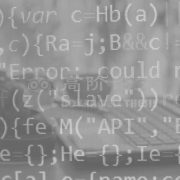澳洲公民权论文代写:警察裁量权
澳洲公民权论文代写:警察裁量权
自由裁量权的使用取决于警方如何处理一个案件的优先权,以及专业人士的意见和其他刑事案件报告的报告。然而,需要的法律方面是非常少。由于没有具体的规则来对付警务人员的自由裁量权,刑事守则只会敦促官员在处理青少年罪犯(贝尔,2012)时,在履行职责时,将其贯彻执行。研究者们发现,影响警察自由裁量权的因素可能是合法还是违法。由于官员需要运用适当的方法和策略,使罪犯认识到他们的非法行为的严重性,并纠正自己,重要的是要找出警方自由裁量权收益率的有效结果。
本研究的目的是评估如何警察实践自由裁量权与被拘留的年轻罪犯在加拿大,假设一个完整的描述如何警察实践自由裁量权,并认识到各种因素影响自由裁量权。本研究探讨以下问题有关的研究:
1)被拘留的青少年影响警察自由裁量权的各种因素是什么?
2、警察行为自由裁量权的结构是如何有效的?
3)警察的自由裁量权由以前的什么改变了吗?
在一个基于福利的少年司法制度,使年轻人从正式的法庭程序是标准的过程(比宾斯基,1984)。主要功能在于这个少年的哲学体系的公正不仅是执法也要杜绝此类犯罪,确保行动的最佳利益(伯格,2004)。这种做法的目的是提供康复的罪犯根据他或她给的反应。这种自由裁量权,尤其是在街上巡逻的警察的少年犯(卡林顿伯格,2004;李森&斯奈德,1981)。根据研究,大约百分之九十的街面巡逻看护人依靠报道警方已收到而不是警察拿着他们自己的协议(卡林顿& schelenberg,2004)。因此,大多数的年轻罪犯是在公民的投诉的基础上尝试。
澳洲公民权论文代写:警察裁量权
Discretionary power usage is dependent upon the police’s preference of how to handle a case, along with opinions of professionals and reports from other criminal case reports. The legal aspect that is required however is very little. Since there is no specific rule to tackle the use of discretion by police officers, the Criminal Code only urges officers to implement it during their duties whilst dealing with young offenders (Bell, 2012). Prior researchers have discovered that the factors that affect police discretion may either be legal or extralegal. Since officers are required to utilize appropriate methods and strategies so as to make the offenders realize the gravity of their unlawful actions and correct themselves, it is important to find out the effective outcomes that police discretion yields.
The objectives of this research are to assess how police practice discretion with detained young offenders in Canada, to postulate a complete description of how the police practice discretion, and to recognize the various elements affecting discretion. This research investigates the following questions pertaining to the research:
1) What are the various factors that affect discretion of police with the detained adolescents?
2) How efficient is the Youth Criminal Justice Act structure in which the police practices discretion?
3) Has the amount of discretion practiced by the police changed from what it used to be previously?
In a welfare-based juvenile judicial system, deflecting the young offenders from formal court procedure is the standard process (Pepinsky, 1984). The primary functioning philosophy that lies in this juvenile system of justice is not only to enforce law but also to put an end to such crimes and ensure that the action is in the best interest of the (Schulenberg, 2004). The aim of such practice is to provide rehabilitation of the offender according to the response he or she gives. This type of discretion is especially during street patrol by police on the juvenile offender (Carrington & Schulenberg, 2004; Leeson & Snyder, 1981). According to research, around ninety percent of street patrol custodies depend on the reports the police has received rather than police holding them on their own accord (Carrington & Schelenberg, 2004). Thus most of the young offenders are tried on the basis of citizens’ complaints.







